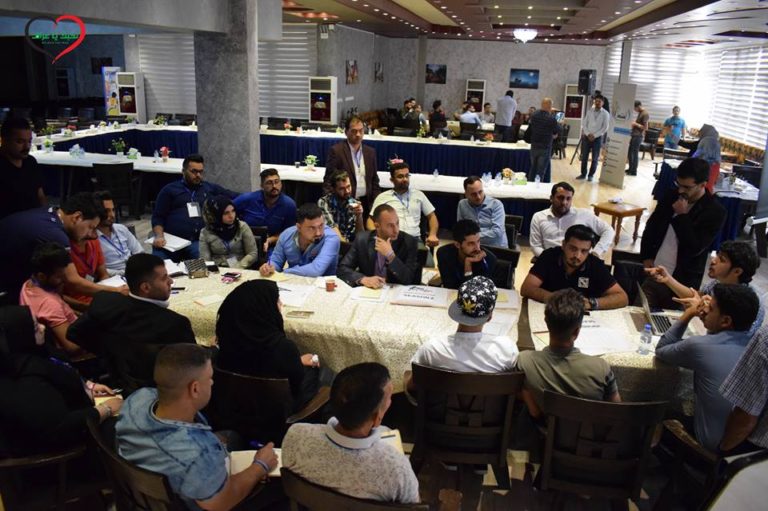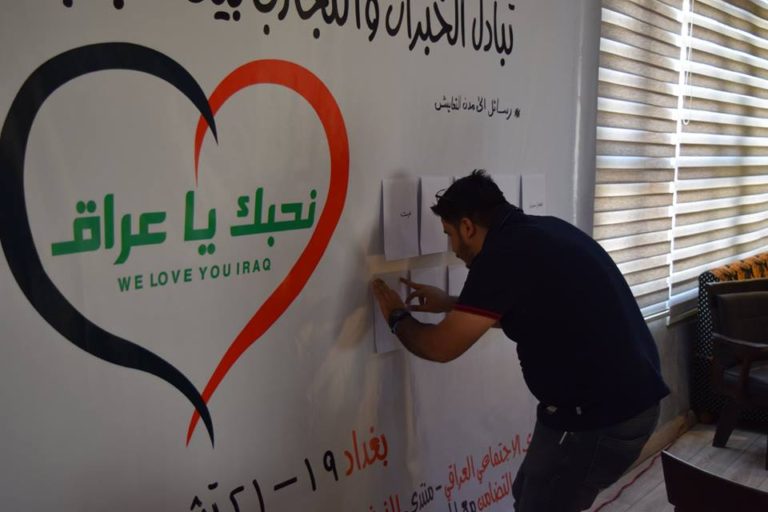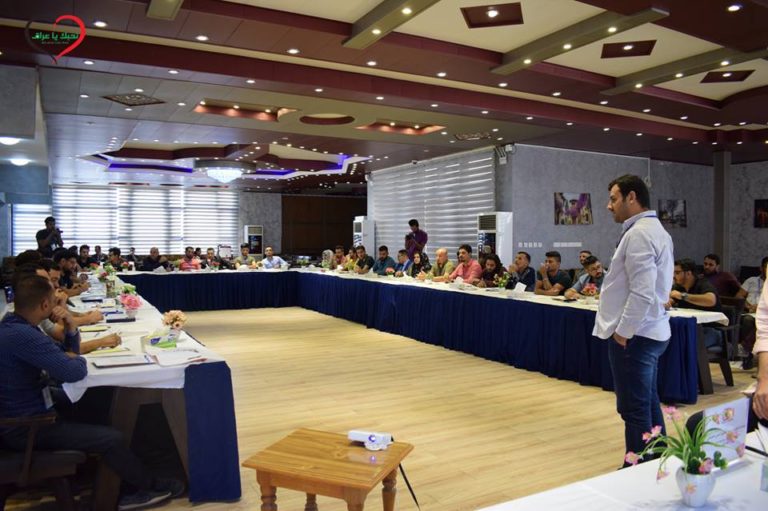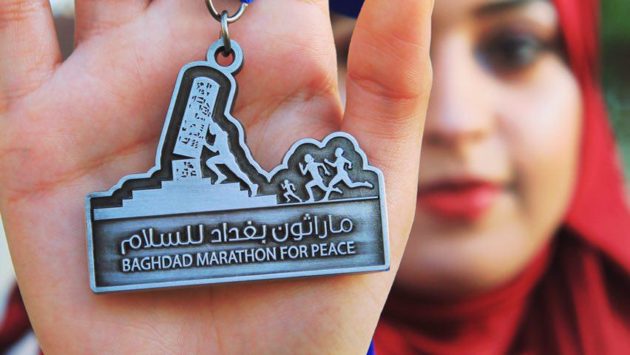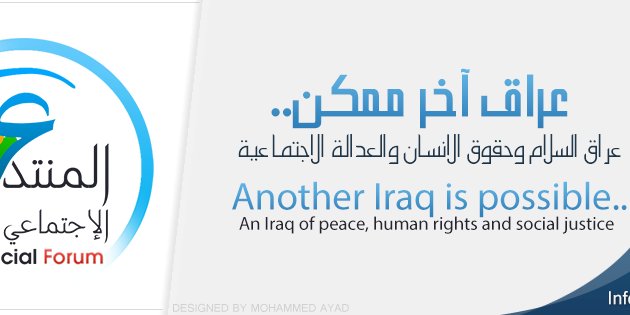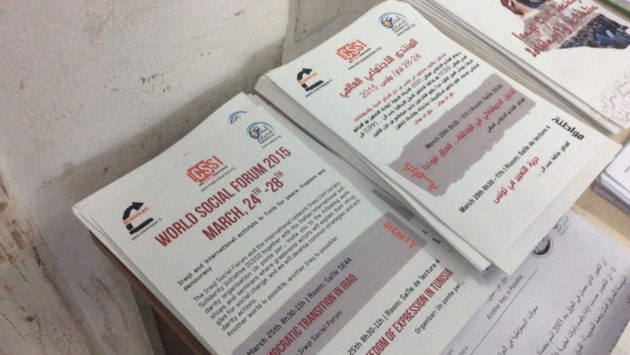Iraqi Cities of the Tigris and Euphrates Rivers Gather under the Slogan “We Love Iraq”!
The Iraqi Social Forum (ISF) and the Iraqi Civil Society Solidarity Imitative (ICSSI)
Baghdad – October 2017
Forty-eight activists representing nine local youth groups from different Iraqi cities met in Baghdad for three days to discuss ways forward for living together along the Tigris and Euphrates Rivers within the program of “Coexistence trails in Mesopotamia and the Middle East”. The meeting offered a unique opportunity to foster civil society across these cities after the threat posed by Daesh has been dealt with.
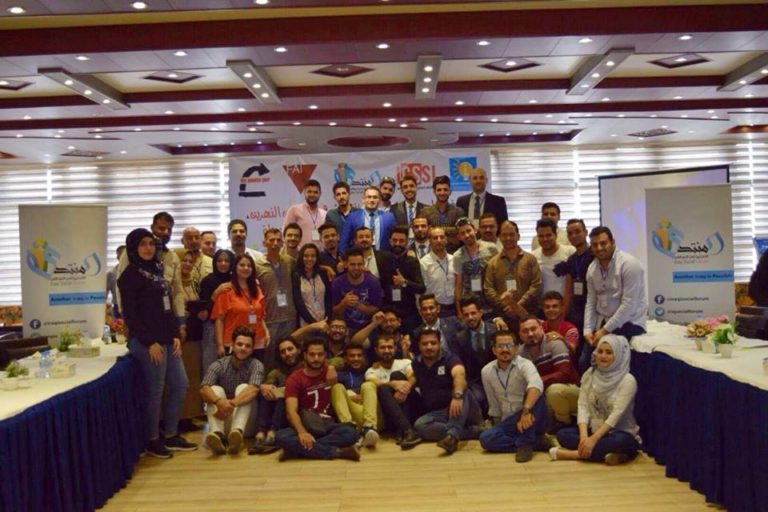
Under the slogan, WE LOVE IRAQ, the Iraqi Social Forum organized the first national meeting of its kind to bring together leading representatives from several activist organizations, including: I Love Dhi Qar Forum, Peace Forum in Anbar, the Najaf Social Forum, Peace Forum in Hit, and Maysan Social Forum. The meeting was also attended by activists from Tikrit, Kut, Babylon, and Diwaniyah who are working towards founding similar forums in their respective cities.
On the agenda was a series of intensive discussions about the nature of civil society work in participating cities and the capacity of local organizations to bring about desired social change and reconstruction. During discussion, the highest priorities and issues facing each city were identified. Despite the particular nature of the challenges facing each city, participants in the discussions prepared a bulletin of the highest priorities for civil society in most.
After a comprehensive overview of each city’s plans, talks turned to a general review and evaluation of each city’s activity plans and the capacities that their working groups seek to establish. The extent of challenges facing civil activism were also assessed alongside the mechanisms for dealing with them in each city. Discussion went from how to form working groups in each city on to building coordinating strategies between cities along the Tigris and cities along the Euphrates. These coordinating strategies will put principles of mutual support and solidarity into practice along the river cities, building momentum for extending the influence of civil society action.
During their stay in Baghdad, the activists convened meetings and numerous talks on the edges of the conference, and participated in activities organized in parallel to the WE LOVE IRAQ meeting. Among the most important activities were the Special Conference for the Future of Social Securities in Iraq, organized by the Social and Economical Rights path (masar) of the ISF, and the “Success Stories Talk Show” put together by the Nonviolence Group and Sports Against Violence Iraq. Meeting participants sent messages of peace and coexistence to Iraqi Kurdistan and the cities of Qamishli and Diyarbakir (in the framework of cities living on the Tigris and Euphrates rivers). Representatives also exchanged messages of mutual support and coexistence in written form and using social media between the upper Tigris and Euphrates cities, cities in the rivers’ middle reaches, and cities on the lower reaches.
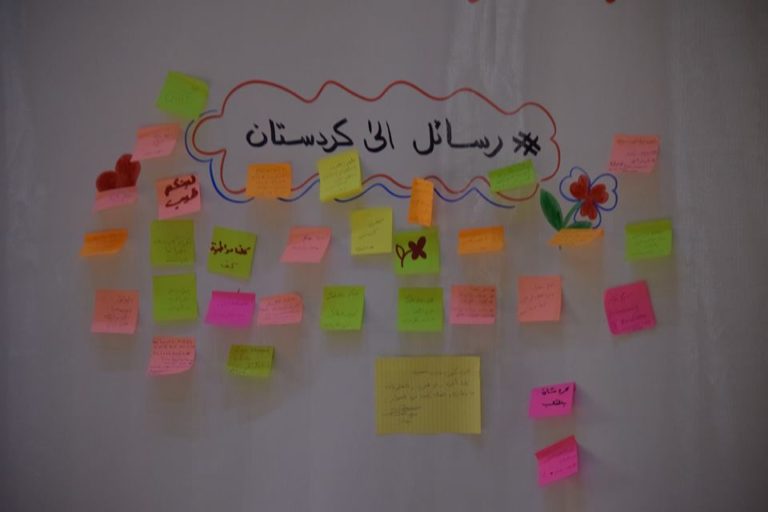
For his part, Ali Saheb, the coordinator for the Iraqi Social Forum, clarified that the conference “comes as the crowning achievement in a series of efforts undertaken by the Iraqi Social Forum at the start of this year to found local branches in eight Iraqi cities: Sulaimaniyah, Tikrit, Kut, Maysan, Hit, Ramadi, Najaf, and Nasiriya, and to which Babel and Diwaniyah were joined later.” He added, “With these local branches, we are trying to build capacities aimed at fostering peaceful coexistence, bringing about societal cohesion, and preserving our natural and cultural heritage, in order to realize the slogan, “Another Iraq is Possible.” Saheb also said, “These connections between the Tigris and Euphrates cities are stronger than the ethnic and religious divisions that are so often alleged by some to keep these cities apart.”
Naseer Baqir, the coordinator for the “I Love Dhi Qar Forum” in Nasiriya said of his group’s participation in the meeting, “We have been working for a long time in partnership with the Iraqi Social Forum, and we have organized a number of activities and events jointly, but this meeting presents an ideal opportunity for us to open up to other Iraqi cities and widen the scope of our work and the range of our activities.” He added, “I think that we are entering into a new stage of civil and societal work, which depends on cooperation and coordination, not competition. This is what must be brought to the attention of civil society activists.”
The meeting, held from October 19th to October 21st, was organized by volunteers of the Iraqi Social Forum and members of its secretariat, in keeping with the principles and values of civil society that the Iraqi Social Forum works to promote among youth groups. The “WE LOVE IRAQ” meeting counts among the initiatives to find ways forward for peaceful coexistence in the country between two rivers. It was carried out by the Iraqi Social Forum in cooperation with the Iraqi Civil Society Solidarity Initiative, the Italian NGO, Un Ponte Per…, and the Information Center for Research and Development, and with support from the Swiss FAI Foundation.
The Swiss FAI Foundation has supported the program of Coexistence trails in Mesopotamia and the Middle East for three years, as part of its commitment to supporting youth-centered initiatives to strengthen social cohesion, peaceful coexistence, and shared cultural heritage in the Mesopotamian region, especially in Iraq, Syria, and Turkey.
Translated from the Arabic by Andrew Alger


